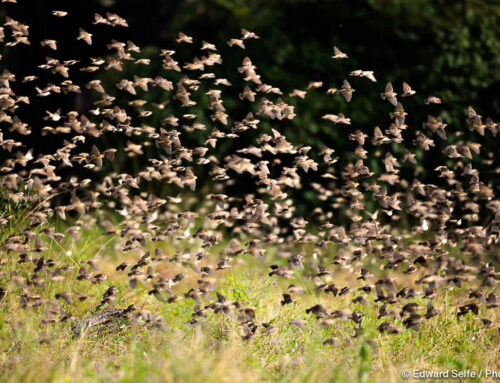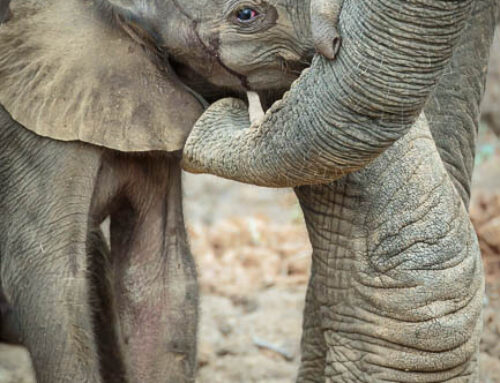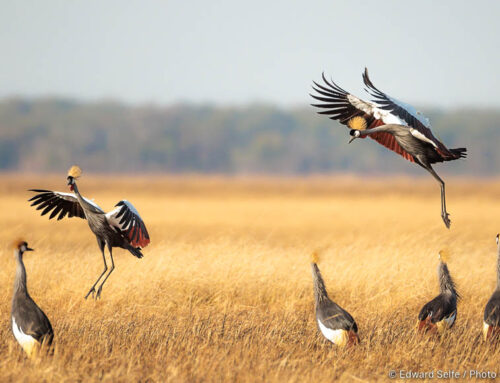We have had an unusually dry couple of months in the Luangwa, with not much serious rainfall since December. This will have its problems later in the year but, for now, it allows us to drive much more widely in the park that we normally can at this time of the year.
Over the weekend, we took two trips into the National Park, and both times we found the well-known Manzi pack which have been living in the central area of the park for the last few seasons. (I had some outstanding sightings with them in the dry season of 2016.) They have chosen a den-site in the central-southern area in both 2016 and 2017 and we’ve had almost daily sightings of them! Luangwa’s wild dogs are really making an impressive comeback!
Our second sighting of them over the weekend started when the pack was beginning to rise from its afternoon slumbers.
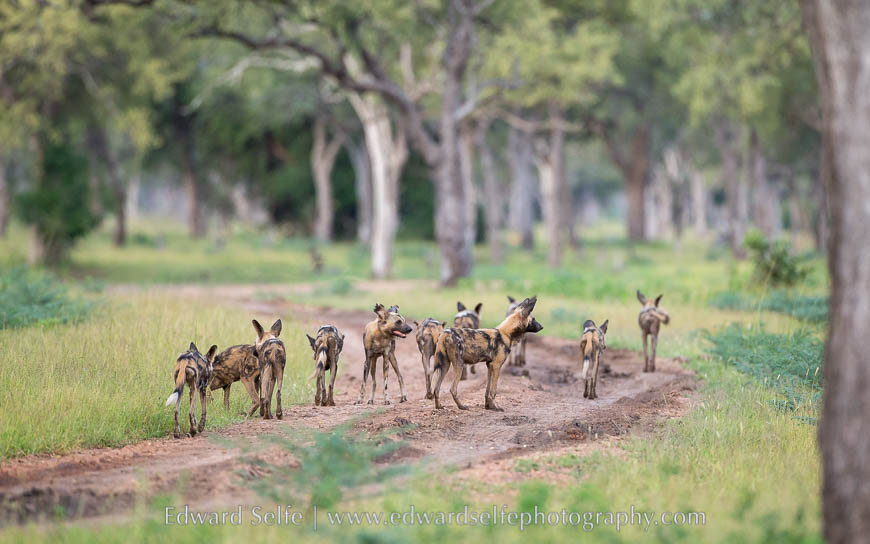
We followed the pack as they started to eye up the antelopes feeding in the surrounding flooded grassland. The pack is now 21 in number (half of which are pups and half are adults and the previous litter from 2016) and their hunts are often quite chaotic and uncoordinated. However this packs seems to thrive by scattering herds of antelope in all directions and then spotting weak or lame individuals in the resulting melee.
As is often the case with dogs hunts, it began suddenly, and ended almost as quickly! The dogs were scattering the antelope far and wide when, suddenly, all attentions turned to a female impala which was running towards the edge of the large lagoon nearby. Perhaps the dogs sensed that they could trap her against the crocodile-filled water, and they quickly identified her as the target. 3 or 4 dogs pursued her, closing from all sides, and she didn’t even reach the edge of the water before she had been caught.
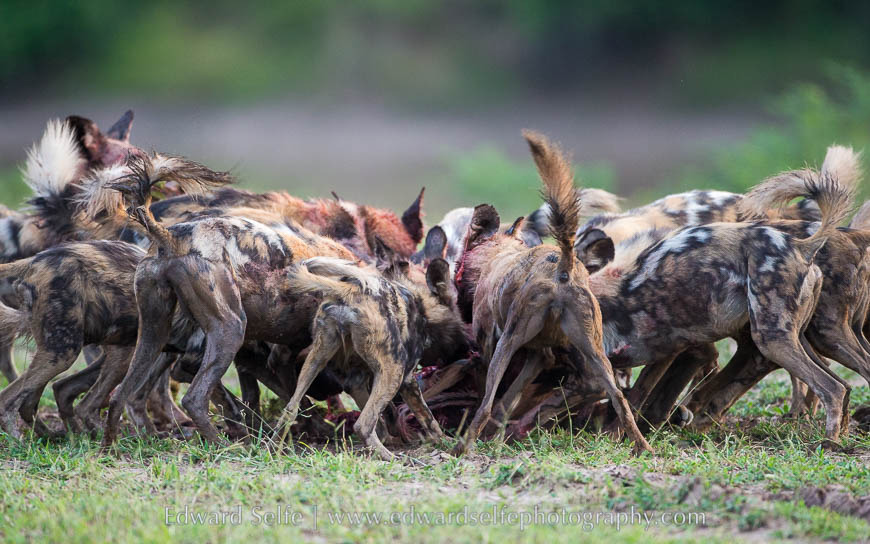
The dogs fed hungrily for a few seconds, and then half of the dogs removed themselves from the mayhem. This, of course, was the adults, who had fed a little and were now leaving the pups to fill their stomachs on the remains. Dogs are extraordinarily social and the pups are at the top of the social ladder, feeding first and being cared for by the adults. One adult, which stole a large piece of meat from the carcass while the pups were still feeding, was rapidly disciplined by another adult.
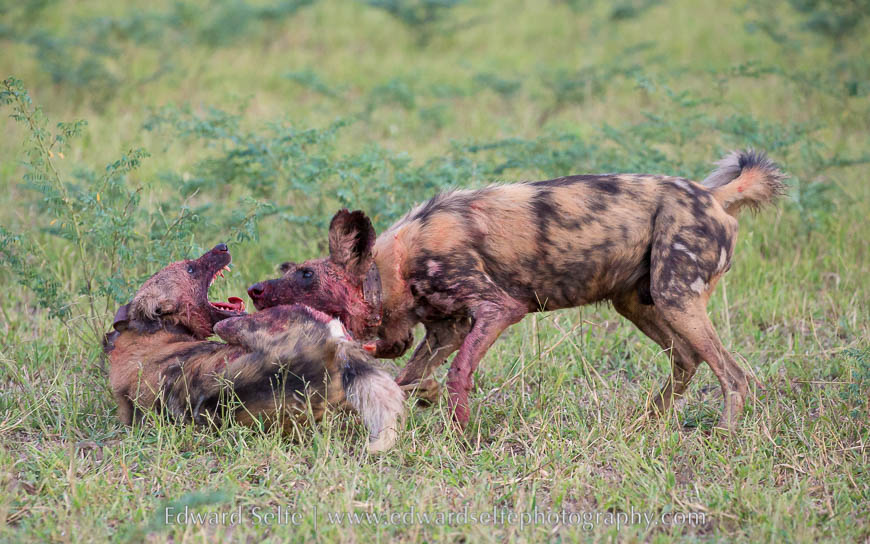
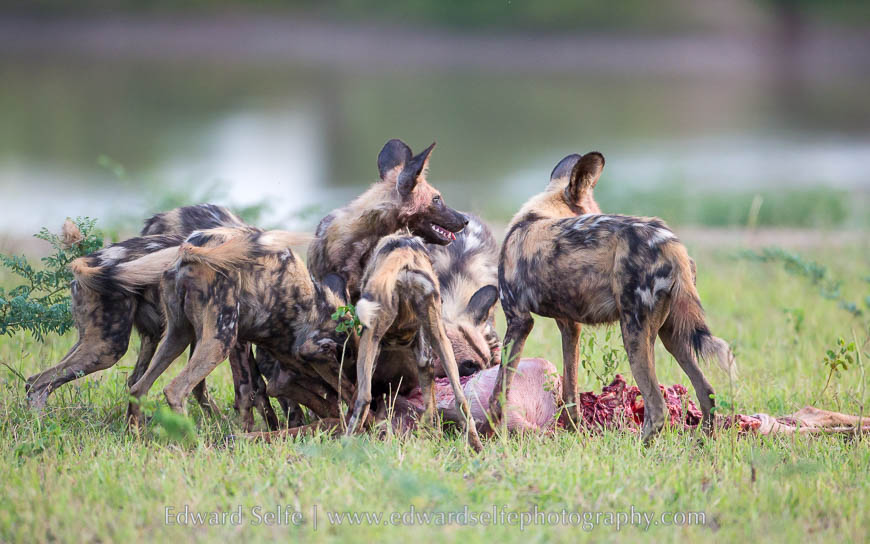
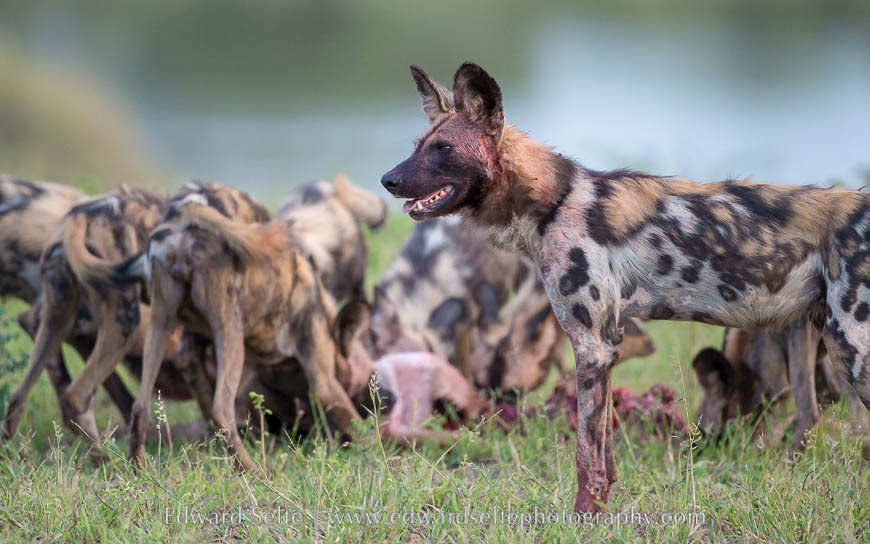
A couple of the adult dogs started to pursue other antelope but the element of surprise had gone, and they were tired from the first hunt. With such a large pack, it’s not uncommon for them to kill more than one antelope which is necessary when there are so many mouths to feed! Not in this case, and certainly some will have gone hungry that night.
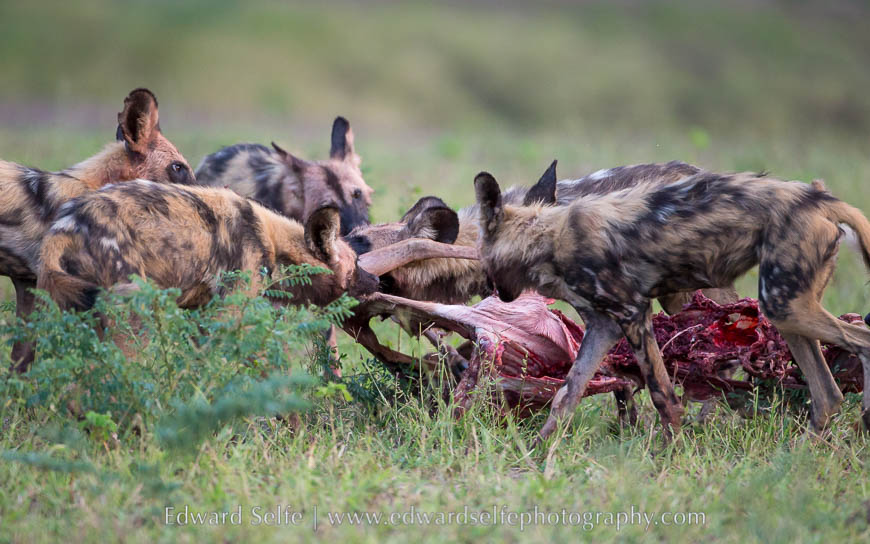
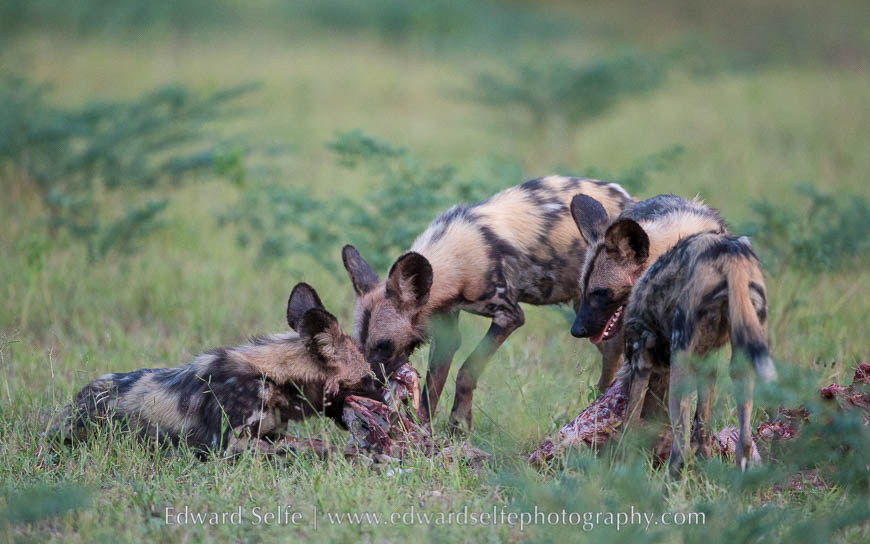
As is often the case, after they had all fed, the pack began to rest and play together, affirming their relationships and reaffirming bonds in the pack.
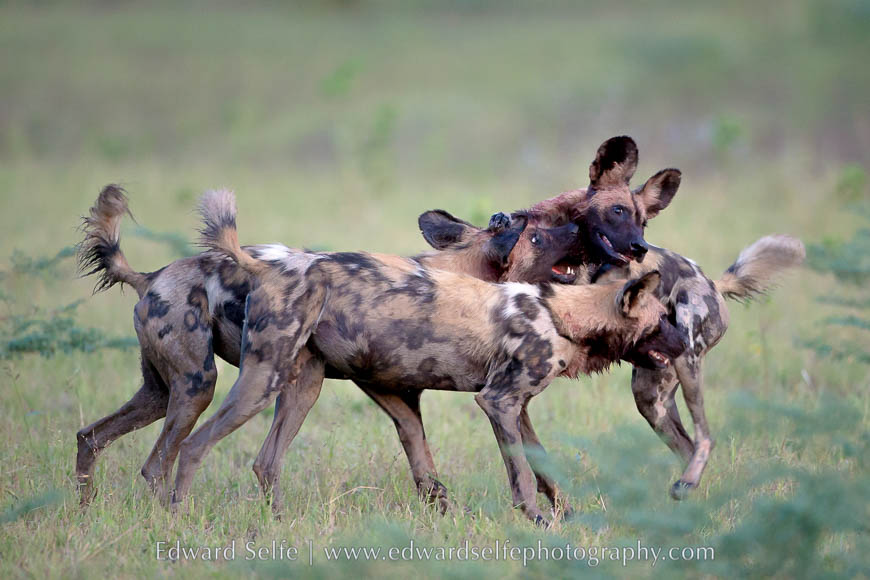
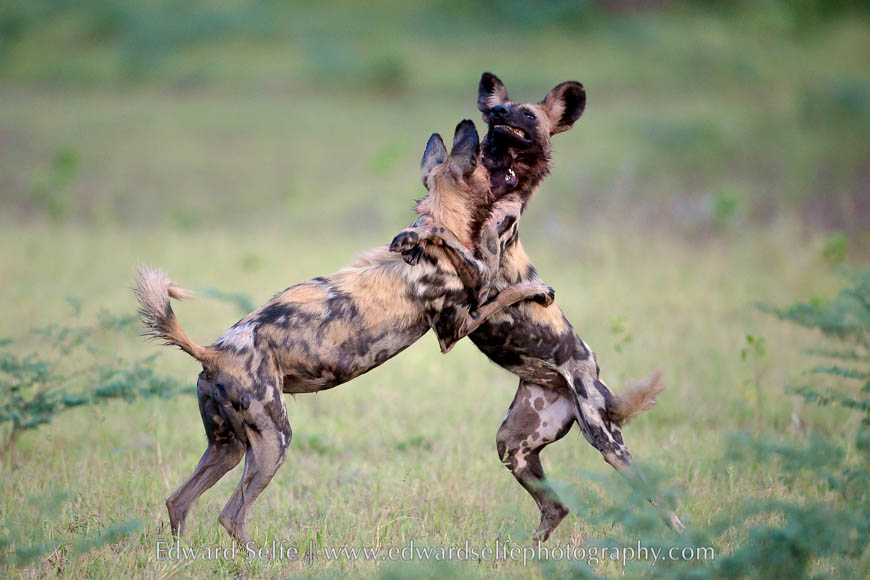
Wild dog numbers have been consistently low for many years after persecution, disease and habitat loss caused a population crash in the last generation. However, concerted conservation work, including by the Zambian Carnivore Programme has reversed these trends in protected areas and they are now a regular sighting in the South Luangwa. There used to be a best time of year to see wild dogs – which was around their denning season – but it appears that they can now be found at any time. Come and see this conservation success story in action.

